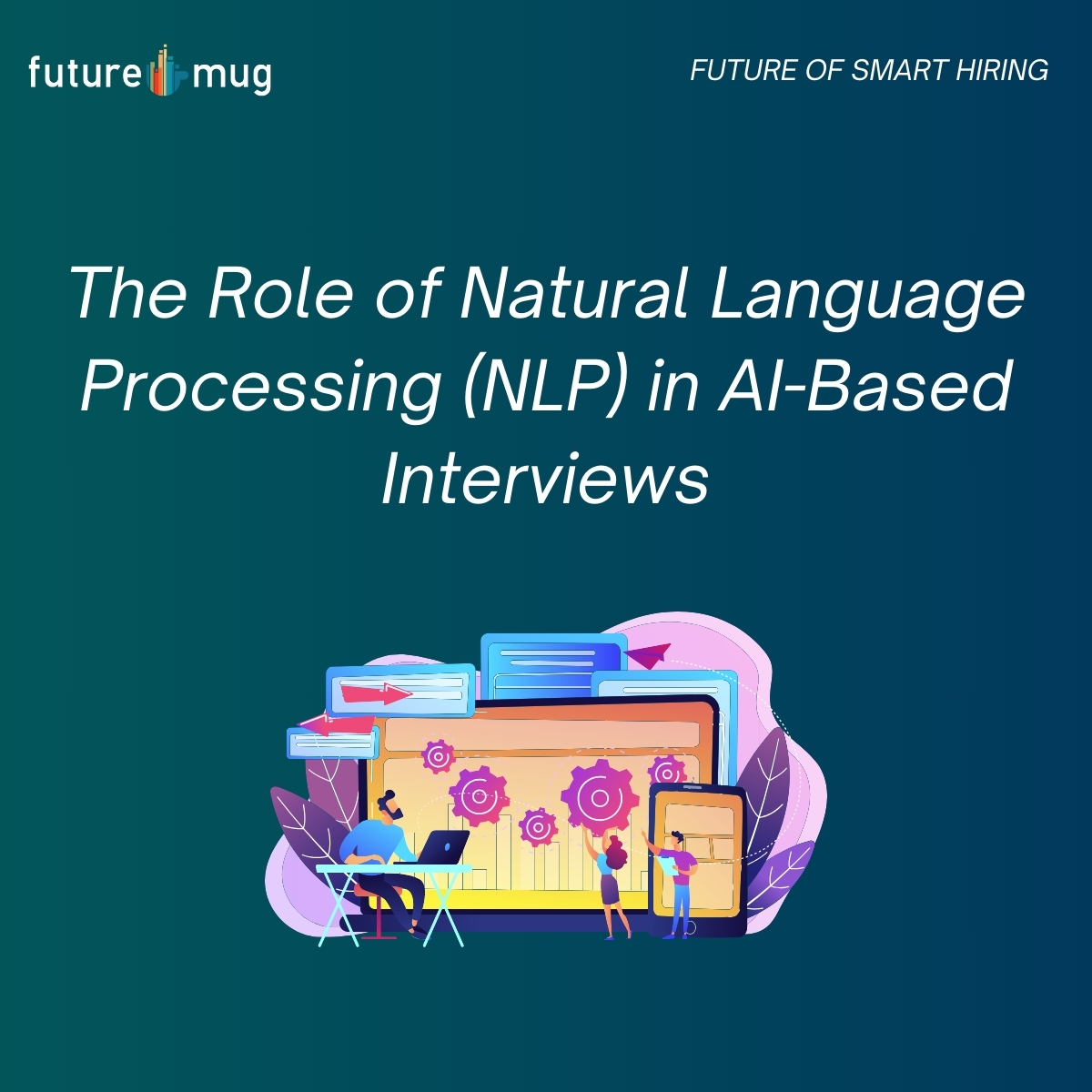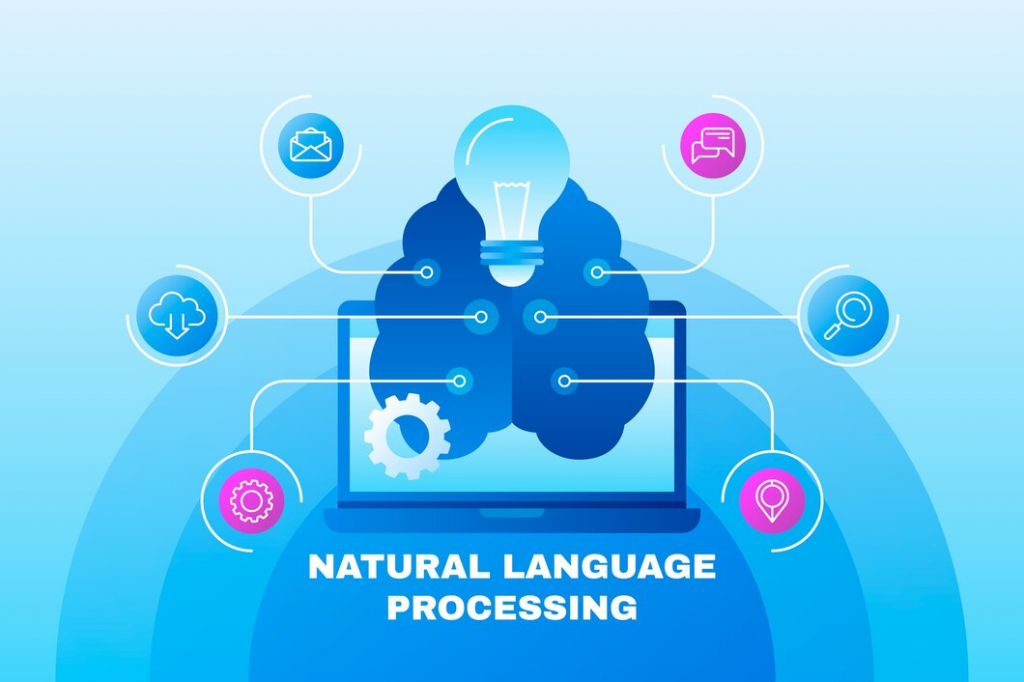
The Role of Natural Language Processing (NLP) in AI-Based Interviews
Natural Language Processing (NLP) plays a pivotal role in AI-based interviews, revolutionizing
the recruitment and hiring process. As companies increasingly adopt AI-driven solutions to
streamline and improve hiring, NLP has become a key technology to enhance the
understanding, evaluation, and interaction between candidates and AI systems.

What is Natural Language Processing (NLP)
Natural Language Processing (NLP) is a branch of artificial intelligence (AI) focused on enabling
computers to understand, interpret, and respond to human language. It combines linguistics,
computer science, and machine learning to process text or speech data.
NLP is used in various applications, such as chatbots, virtual assistants, translation services,
and sentiment analysis. By analyzing the structure and meaning of language, NLP allows
machines to derive insights, respond to queries, and automate communication tasks.
This technology bridges the gap between human communication and machine understanding,
making interactions with AI systems more natural and efficient.
Below is the role of NLP in AI-based interviews across several areas: candidate interaction,
data analysis, bias mitigation, sentiment analysis, and scalability.
1. Improving Candidate Interaction
NLP allows AI systems to understand and respond to human language, making interactions
more conversational and less mechanical. In AI-based interviews, NLP is critical for ensuring the
system can interpret candidates’ words and phrases and generate appropriate responses. By
parsing the language used, NLP-based systems can maintain a natural flow of conversation,
creating an environment where candidates feel they are being fairly assessed.
For example, in structured AI interviews, NLP algorithms can assess open-ended responses by
identifying the context, intent, and key skills mentioned by the candidate. The AI then evaluates
these responses based on predetermined criteria, offering a more consistent and scalable
method of assessment than human interviewers, whose subjective impressions may be
influenced.
2. Automated Data Collection and Analysis
NLP in AI-based interviews also allows for efficient data collection and analysis. In traditional
interviews, assessing open-ended answers often requires a significant amount of time and effort
from recruiters. AI-based systems equipped with NLP can automatically transcribe and analyze
responses, extracting key themes, identifying relevant skills, and even comparing candidates’
answers against a desired profile.
Moreover, NLP can be applied to understand non-verbal communication through voice data. For
example, NLP algorithms can detect speech patterns, tone, and pauses, which can be important
indicators of a candidate’s confidence, communication skills, and emotional state. This provides
recruiters with a deeper understanding of the candidate’s capabilities beyond the content of their
answers.
3. Reducing Bias in the Hiring Process
Bias in hiring is a major concern, and AI-based interviews leveraging NLP aim to mitigate this
issue. Since NLP models analyze the linguistic content and tone of the conversation, they focus
on objective parameters such as clarity, vocabulary, and relevant experience, rather than
subjective factors that might influence a human recruiter (e.g., appearance, accent, or
unconscious bias).
Furthermore, NLP can be programmed to disregard factors such as gender, race, or
background by focusing solely on the quality of responses and the skills demonstrated. This
helps in providing a fairer, data-driven method of candidate assessment. The consistency with
which AI interviews are conducted, thanks to NLP, ensures that all candidates are treated
equally, thus lowering the risk of human bias influencing the hiring outcome.
4. Sentiment and Emotion Analysis
One of the most advanced roles of NLP in AI-based interviews is in sentiment and emotion
analysis. NLP algorithms can detect underlying emotions in candidates’ responses, gauging
their enthusiasm, confidence, or even anxiety. This emotional understanding can offer valuable
insights into how a candidate might handle high-pressure situations, their passion for the role, or
their overall attitude.
Sentiment analysis works by analyzing the choice of words, tone, and context of the
conversation. This layer of evaluation is particularly useful for roles that require strong
interpersonal skills or emotional intelligence, as it provides an extra dimension to the
assessment, offering a more comprehensive view of the candidate’s soft skills.
5. Scalability and Efficiency
NLP-based AI interviews offer unparalleled scalability and efficiency. Unlike human interviewers,
AI systems can conduct multiple interviews simultaneously, processing and analyzing large
amounts of data without fatigue. This makes it possible for organizations to interview a greater
number of candidates in a shorter period while maintaining consistency in how each interview is
conducted and evaluated.
Additionally, because NLP enables AI systems to analyze unstructured data such as
open-ended responses, companies can interview candidates globally, across different
languages and dialects. NLP-based translation tools can help break language barriers, allowing
international candidates to participate in the recruitment process seamlessly.
6. Challenges in NLP for AI Interviews
Despite its advantages, there are still challenges that NLP faces in AI-based interviews. For
instance, NLP models might struggle with certain dialects, accents, or colloquialisms that they
are not adequately trained on, which could lead to misunderstandings or inaccurate
assessments. Furthermore, while NLP reduces bias, it does not eliminate it entirely, as AI
models are still susceptible to biases present in the data they are trained on.
Another challenge is the emotional nuance that humans naturally perceive during interviews.
While NLP is advancing in detecting sentiment and tone, it still lacks the depth of emotional
understanding that human interviewers can often pick up intuitively.

Conclusion
NLP is transforming AI-based interviews by enhancing the accuracy, scalability, and fairness of
the hiring process. From improving candidate interaction through natural, conversational
interfaces to automating data analysis and reducing bias, NLP is an essential tool in modern AI
recruitment systems. Despite certain challenges, the continued development of NLP
technologies is likely to further refine AI interviews, making them more reliable and equitable
while significantly improving the candidate experience.
In the near future, as NLP continues to evolve, we can expect even more sophisticated
applications of this technology, such as real-time coaching for candidates, more nuanced
emotional assessments, and perhaps even AI-driven decisions on candidate selection. This will
undoubtedly reshape the landscape of hiring in a way that is efficient, scalable, and more
aligned with fair hiring practices.